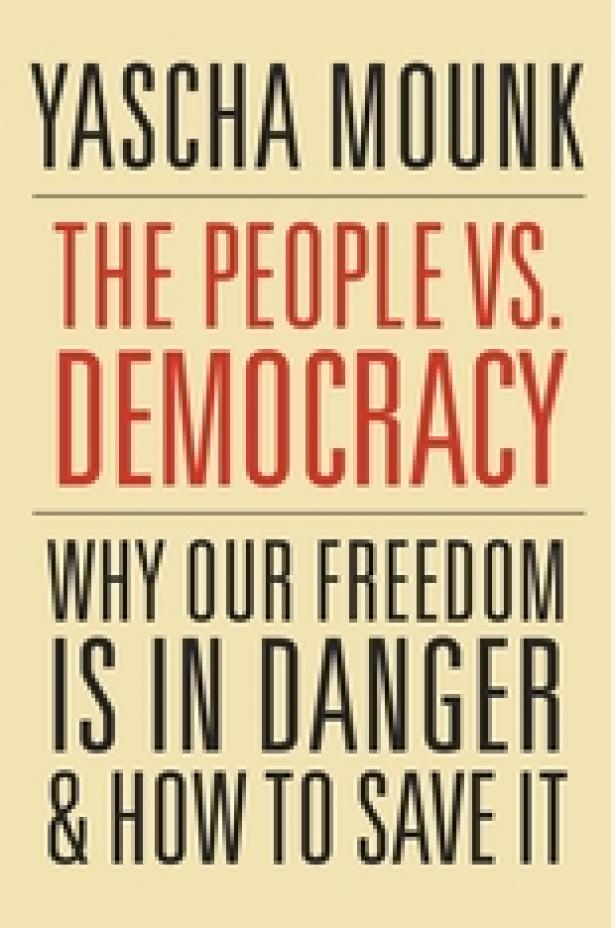The People vs. Democracy
Why Our Freedom Is in Danger and How to Save It
Yascha Mounk
Harvard University Press
ISBN 9780674976825
Liberal democracy is having a bad decade, with no end in sight. According to Freedom House, a government-funded NGO, “democracy is in crisis”, stuck in retrograde since the middle of George W Bush’s first term.
A clear majority of Americans believe Donald Trump acts more like an autocrat than a traditional president, while a quarter of US millennials view free elections as non-essential. The US is regarded as a “flawed” democracy, lagging behind such countries as Malta, Uruguay, Spain and South Korea. Even before Trump and Brexit, the liberal order was losing its luster.
Enter Yascha Mounk, a political theorist at Harvard. In his latest book, The People vs Democracy, Mounk focuses on the rise of illiberal democracy – that is the emergence of societies that elect their governments but which give short shrift to liberal norms such as a free press, due process, transparency, tolerance and civil liberties. Oban’s Hungary, Modi’s India and Erdoğan’s Turkey are leading members of this dubious club, according to Mounk.
Mounk convincingly argues that democracy and liberalism are not synonymous and that in the face of uneven growth and a multicultural world, friction (or worse) between the two concepts is now almost predictable. The People vs Democracy delivers a clear-eyed take on how liberal democracy fell out of favor in swaths of the Anglosphere and elsewhere. Not surprisingly, Mounk is alarmed by the rise of populism and what he diagnoses as liberal democracy’s fragility.
He acknowledges that nationalism will be with us for the foreseeable future and posits the possibility that “citizens have built up loyalty to their political system because it kept the peace and swelled their pocketbooks, not because they hold a deep commitment to its most fundamental principles”. Does he overstate? Only maybe.
Over decades, political values become baked into the national DNA. In the US, they are embedded in the constitution and celebrated on 4 July. Yet those same conventions are being buffeted by sustained centrifugal forces. In Mounk’s words, “democracy is deconsolidating”.
On that note, the tropes of 2016 bore an eerie resemblance to some place other than the Land of the Free and the Home of the Brave. Chants of “lock her up” and “Lügenpresse”, egged on by Trump and embraced by his minions, became campaign hallmarks.
As if on cue, Republican politicians accepted Trump as strongman-lite. In a radio interview Paul LePage, Maine’s governor, treated Trump’s tropism toward authoritarianism as a political plus. In response to a questioner, LePage conflated the rule of law with law and order, and declared that “our constitution is not only broken, but we need a Donald Trump to show some authoritarian power in our country”. History does not necessarily repeat itself, but it can rhyme.
Although Mounk is openly discomfited by nationalism, he is impressed by its potency and durability, calling it the “most defining political force of its time”. He contends that in the 18th and 19th centuries, nationalism “nearly always took the form of a hankering for ethnic purity as well as democracy”.
To be sure, the homogeneous impulse, a frequent component of nation-building, was a part of the American Genesis. In the drive to ratify the constitution, common ancestry and religion were enlisted, with English and Protestant the operative ties that bound. John Jay, the nation’s first chief justice and an abolitionist, wrote of Americans being “a people descended from the same ancestors, speaking the same language, professing the same religion”. Alexander Hamilton was not the only voice; the debate still rages.
An immigration proponent, Mounk observes that going back in time citizenship was usually restricted to a subset of the overall population. In ancient Athens, the status of citizen was limited to the offspring of two Athenian parents. By contrast, the Roman empire was more elastic in its approach, mindful that citizenship and ethnic sameness counted for less when an emperor occupied the throne.
The People vs Democracy is conscious of how the west arrived at its current inflection point. In addition to listing the usual causes, Mounk writes that too much distance emerged between government and the governed. As an illustration he points to the European commission, an opaque and unelected bureaucracy that affects the lives of hundreds of millions.
Mounk also casts a wary eye at tribalism. Like Columbia University’s Mark Lilla, he rejects identity politics as antithetical to the “possibility of a truly open and multiethnic society”. And therein lies the challenge for Mounk and proponents of modern-day liberal democracy: preserving democracy with its attendant checks and balances while protecting individual freedoms in the face of growing antagonisms.
As expected, The People vs Democracy lists possible remedies to this malaise, including “inclusive patriotism”. Mounk’s solutions will probably come up short as the haves and have-nots continue to move down separate paths, with the rich hiving off and the cognitive elites pairing off. Moreover, in the US reconciliation is further complicated by political affiliation becoming increasingly aligned with race and religion. These divides are organic if not intractable.
Mounk is dead-on when he observes that candidates can no longer preach the virtues of the status quo when life is an unbridgeable moat to far too many. Citizens do not want to be sneered at as would-be vandals by their duly elected stewards.
The world is no longer flat and, once again, blood and soil are relevant. Voters derided as “deplorables”, that is those who came up short in the march toward globalization, will no longer tolerate being ignored. How liberalism and democracy eventually respond to this latest test is the critical but unanswered question.
Lloyd Green is an attorney in New York. He was opposition research counsel to George HW Bush’s 1988 campaign and served in the Department of Justice from 1990 to 1992.


Spread the word